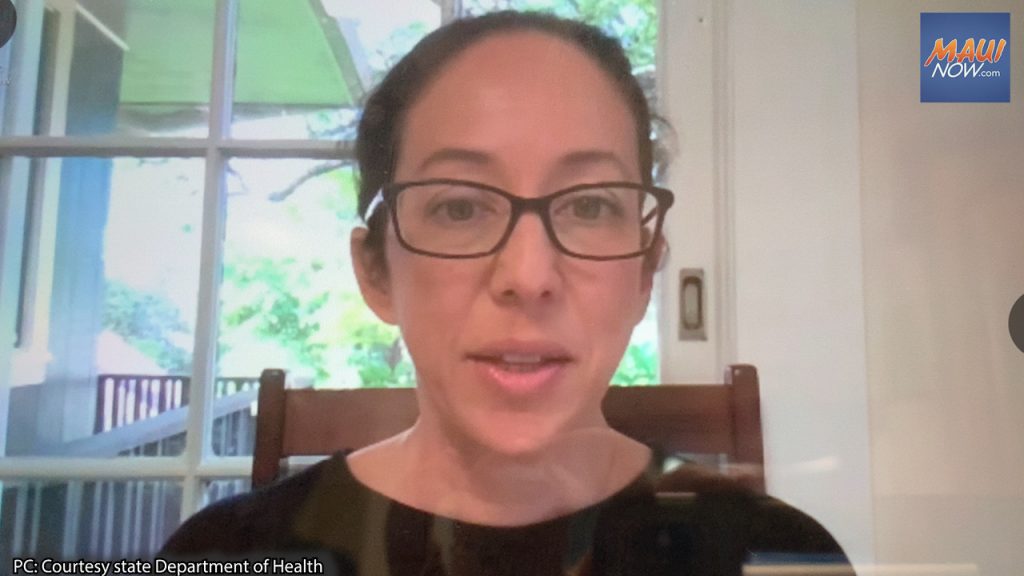Department of Health Announces Rebirth of Hawai‘i Immunization Registry

The Hawai‘i Department of Health has reactivated the Hawaiʻi Immunization Registry, according to an announcement made this morning.
The immunization registry is a statewide information system that stores and tracks patient immunization records for 25 diseases including vaccinations for polio, tetanus, measles, mumps and now COVID-19.
“The Hawai’i Immunization Registry provides health care professionals with a patient’s individual immunization history. Providers can see when a patient was vaccinated and what product they received. They can tell when a patient is overdue for a vaccine and avoid administering redundant vaccines,” said State Epidemiologist Dr. Sarah Kemble.
The immunization registry was under repair when the pandemic began. A record of most COVID-19 vaccinations administered in Hawai‘i were entered and stored in the Vaccine Administration Management System, which was developed by the Centers for Disease Control and Prevention.
State officials say the registry was inoperable from 2019 and taken offline following a couple of outages in 2018. Steps were taken to resolve infrastructure issues and rebuild the system to make it functional again.
COVID-19 vaccination records have now been transferred from VAMS to the refurbished immunization registry. Vaccination data on the Hawai‘i COVID-19 Data Dashboard is now pulled from the immunization registry.
Data in the registry is more easily parsed allowing DOH to determine and display more accurate data. For example, vaccinations recorded more than once in VAMS were identified and duplicate vaccinations were removed as the records were transferred to the immunization registry.
Booster doses recorded by vaccination providers in VAMS as initial doses have been recategorized as 3rd doses. As a result, the number of initial vaccinations has decreased, but the number of 3rd doses has increased by 67,000 doses to 228,892. The total number of vaccinations administered to date in Hawaiʻi currently stands at 2,320,608.
The Hawai’i Immunization Registry also enables DOH to identify non-Hawai‘i residents and remove them from the state’s resident vaccination count. While this slightly lowers Hawai‘i’s percentage of completed vaccinations from 72.5% to 71.1%, it provides a more accurate picture of the state’s vaccination effort.
“Moving from VAMS to the Hawai‘i Immunization Registry not only improves patient care, it also gives us more accurate vaccination data. We are committed to providing the most accurate data possible,” said Health Director Dr. Elizabeth Char, FACEP.
Dr. Kemble said one of the biggest positive impacts is that it allows the DOH to work in partnership with providers for overall care of patients. It allows the department to identify gaps and provide outreach for vaccinations.
Health Officials Discuss Omicron Variant and Areas of Concern
Dr. Kemble said the Omicron variant has one feature, an S Target Dropout, that makes it more easily detectable in some PCR tests. This was utilized last year with the B117 variant in the UK. Health officials have put out the same call to participating laboratories to inform the state Department of Health right away if there is an “S Target Dropout.” Sequencing takes about a week on average, and with that molecular clue, it can be prioritized for further investigation.
“We have not had any reported cases Omicron in Hawaiʻi at this point, nor are we tracking any as Target Dropouts,” said Dr. Kemble. “Also, nationally, I had confirmation from CDC this morning that we have yet to identify a case of Omicron in the US as of today.”
“What the public health world is concerned about here is with even just these clusters being reported out of several countries, it is likely, as we have seen before, that it is already spread farther that what we have yet to detect,” said Dr. Kemble, noting that health officials are looking at ways to ramp up surveillance to ensure it is identified swiftly.
She discussed areas of concern with the Omicron variant. “One is as with every new varian that has emerged, is that we know so little about it. What we know so far is that it has a large number of mutations, including in the spike protein, and that raises concern because that’s how the virus finds its way into our bodies. By mutating there, it may be finding new ways to infect and transmit,” said Dr. Kemble.
“I do want to remind everyone, as we have seen with other variants, we have yet to know what the actual practical implications of that may be,” she said. “There is some concern that it may be more transmissible, because we are seeing it begin to emerge in areas that were already dominated by Delta; and Delta was known to be very effective at transmission. So perhaps seeing outbreaks of this new variant means that it may be also highly transmissible.”
Dr. Kemble said health officials don’t yet know a lot about how dangerous it is to people in terms of severity of disease. “Those are questions that all state epidemiologists are asking right now and anxious to know,” she said.
“The other thing that I think raises concerns about this variant is that it exposes a weakness that we have had globally since the beginning of this pandemic–and that is this virus has found ways to transmit through human populations. And the best way to fight it really is to come together–globally, within our communities, and our state–and it really exploits any divisions that we have within those systems. So when there are health inequities, when there are gaps and pockets in which there are large numbers of unvaccinated people, that’s when these variants really exploit and can transmit rapidly.”
“That’s a lesson we really need to learn from this pandemic–that we have to pull together to stay on top of this and make sure that we don’t become victims again to having widespread transmission in areas where we perhaps could prevent it by pairing vaccination with mitigation measures that we already know so well,” said Dr. Kemble.
Information on where vaccines are available can be found at https://hawaiicovid19.com/vaccine/.
*Maui Now’s Wendy Osher contributed to this report.










